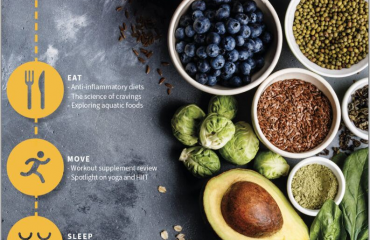How to Increase Red Blood Cells: Foods, Lifestyle, and More – Verywell Health
Jeffrey S. Lander, MD, is a board-certified cardiologist and the President and Governor of the American College of Cardiology, New Jersey chapter.
Your red blood cells circulate within your blood vessels to deliver oxygen to all of your body’s tissues and organs and to carry carbon dioxide from your cells to your lungs. Oxygen is vital for the energy and survival of every cell in your body.
If you have a low number of red blood cells, or if your red blood cells aren’t functioning as they should, this can cause low energy and may harm your body. Your healthcare provider will recommend lifestyle modifications, and possibly medical intervention if you have a low red blood cell count.
This article will discuss symptoms and causes of low red blood cells (RBCs), nutrition and lifestyle measures to support healthy blood cells, and when to see the doctor.
VeselovaElena / Getty Images
Anemia is a condition in which the red blood cells are low in number, too small, too large, or not healthy.
The effects of anemia can develop quickly or slowly, depending on the cause. The symptoms of anemia can range from mild to severe, depending on the extent of the anemia and your overall health.
Common symptoms of anemia include:
Severe anemia can cause fainting, shortness of breath, heart failure, organ damage, or organ failure.
There are many different causes of anemia. Generally, this condition is caused by diminished production of red blood cells or by damage or loss of red blood cells.
Common causes include:
Anemia can be diagnosed based on a red blood cell count, hemoglobin, hematocrit, and red blood cell indices, which are part of a complete blood count (CBC):
Sometimes nutritional deficits are the cause of anemia. When this is the case, you may be able to restore a normal red blood cell count by consuming enough of the lacking nutrient.
Folic acid helps your body make red blood cells. Dietary sources include leafy green vegetables (like kale and spinach), beans, peanuts, liver, and seafood.
Iron is an important component of hemoglobin. Some dietary sources are red meat, seafood, leafy green vegetables, and beans.
Vitamin B12 is involved with the production of red blood cells. Some dietary sources are beef, chicken fish, diary, and eggs.
Copper helps the body make hemoglobin. Dietary sources include leafy green vegetables, nuts, mushrooms. organ meats, and oysters.
Vitamin A helps with production of red blood cells. Some dietary sources are carrots, potatoes, fish, liver, and leafy green vegetables.
Vitamin C helps with iron metabolism, which is important for hemoglobin production. Some dietary sources include tomatoes, citrus fruit, strawberries, broccoli, and leafy green vegetables.
Vitamin E helps protect the red blood cells. Some dietary sources are almonds, pine nuts, avocado, and bell pepper.
Usually, excess amounts of nutrients will not increase your red blood cell count above optimal levels because your body will eliminate the extra amount of nutrients consumed.
There are also a few non-dietary lifestyle strategies you can use to increase your red blood cell count if it is low. These strategies will only be effective if you are also getting the nutrients your body needs to make enough healthy red blood cells.
In general, exercise stimulates erythropoiesis (production of red blood cells). Your body normally breaks down red blood cells after approximately three to four months, and it constantly makes new ones to replace them.
Exercising may also cause your older red blood cells to break down so they can be recycled more quickly, but the new red blood cells will be better able to carry oxygen than the older ones, so this natural process improves your health overall.
Drinking alcohol contributes to anemia through multiple different mechanisms. Alcohol interferes with your body’s absorption or nutrients, and it also affects the process of red blood cell production.
Furthermore, high amounts and prolonged alcohol use can damage the liver and kidneys, interfering with their roles in red blood cell production.
You should see a doctor if you experience any symptoms of anemia. Sometimes anemia is caused by medical problems that can become more serious and less treatable if they progress without treatment (like kidney disease or cancer).
Often, anemia is related to issues such as diet or gastrointestinal problems (like ulcerative colitis) that prevent proper absorption of nutrients. You can get treatment for your anemia, and you can also get effective treatment for the underlying problem.
And because the symptoms of anemia are nonspecific, it’s possible that your doctor may diagnose another health problem as the cause of your symptoms.
The medications used to treat low red blood cells depend on the cause. Sometimes people who are low in iron, vitamin B12, or another nutrient need to take supplements, especially if the nutritional deficiency is caused by an absorption problem.
Often, the underlying disorder has to be treated. For example, if cancer is the cause, it will need appropriate treatment.
In some situations, particularly in the setting of kidney disease, erythropoietin is prescribed. This is a natural hormone produced by the kidneys that stimulates red blood cell production.
For some people, a blood transfusion is necessary to provide adequate blood for survival. And when bleeding is the cause of anemia, treatment may include options such as medication to heal an ulcer or surgical repair of the damaged area.
Low red blood cells can be a problem in many different chronic diseases and acute medical conditions. It’s important for everyone to have habits that help maintain a normal red blood cell count. These include getting the nutrients your body needs for healthy red blood cell production, exercising regularly, and avoiding excess alcohol.
Additionally, if you have a condition that’s lowering your red blood cells, you may need medical treatment to correct the problem.
A low red blood cell count is one of the signs of an underlying health problem. There are many causes and solutions. If you have a medical illness that’s causing you to have reduced number of red blood cells, you will need treatment.
It’s also very important that you incorporate lifestyle habits that will help you maintain a healthy amount of red blood cells and that you keep up these habits for the long term to avoid a recurrence of anemia.
If you are otherwise healthy, the best way to increase a low red blood cell count is by avoiding alcohol and eating foods that provide the nutrients your body needs for red blood cell production. If your red blood cell count is very low, you may need medical interventions to increase your red blood cells, such as treatment with erythropoietin or a blood transfusion.
Most of the dietary nutrients that you need for healthy red blood cells can be obtained in a vegetarian diet—especially if you eat foods that are fresh or fortified with nutrients. Whether you eat meat or are vegetarian or vegan, you need to make a deliberate effort to ensure that you are getting the nutrients you need to avoid anemia.
Vitamin B12 is not naturally present in vegetarian or vegan foods, so you would need to take a supplement to make sure that you do not develop vitamin B12 anemia.
Exercise increases red blood cells. Sometimes, however, high amounts of exercise may lower red blood cells. If you are an athlete, it’s important to pay attention to your nutrition so you will be able to keep up with the high level of demand that you are putting in your body.
Sometimes athletes train in regions that are in high altitudes. This stimulates red blood cell production and may improve endurance and oxygen efficiency in the body. You can talk to your healthcare provider and an athletic trainer to determine which strategies are best for your health and your sports performance.
Sometimes high altitudes can lower your oxygen level due to changes in atmospheric pressure. Your body may compensate by increasing hemoglobin and making more red blood cells, which can help improve your oxygen levels.
You should avoid foods that are low in nutritional value because they can fill you up and prevent you from eating nutrient-rich foods.
Additionally, dairy products can interfere with iron absorption. While it is important to get the nutrients that are found in dairy products, if you have iron deficiency anemia, your doctor may recommend that you eat dairy at a different time of day than iron-rich foods to maximize your absorption of iron.
The drinks that are high in iron include smoothies made with iron-rich foods, like kale or apples, or drinks that are fortified with iron.
Sign up for our Health Tip of the Day newsletter, and receive daily tips that will help you live your healthiest life.
Thank you, {{form.email}}, for signing up.
There was an error. Please try again.
Głąbska D, Guzek D, Kanarek B, Lech G. Analysis of association between dietary intake and red blood cell count results in remission ulcerative colitis individuals. Medicina (Kaunas). 2019;55(4):96. doi:10.3390/medicina55040096
Mairbäurl H. Red blood cells in sports: effects of exercise and training on oxygen supply by red blood cells. Front Physiol. 2013;4:332. doi:10.3389/fphys.2013.00332
Cylwik B, Naklicki M, Gruszewska E, Szmitkowski M, Chrostek L. The distribution of serum folate concentration and red blood cell indices in alcoholics. J Nutr Sci Vitaminol (Tokyo). 2013;59(1):1-8. doi:10.3177/jnsv.59.1
Montero D, Lundby C. Red cell volume response to exercise training: Association with aging. Scand J Med Sci Sports. 2017;27(7):674-683. doi:10.1111/sms.12798
Thank you, {{form.email}}, for signing up.
There was an error. Please try again.




